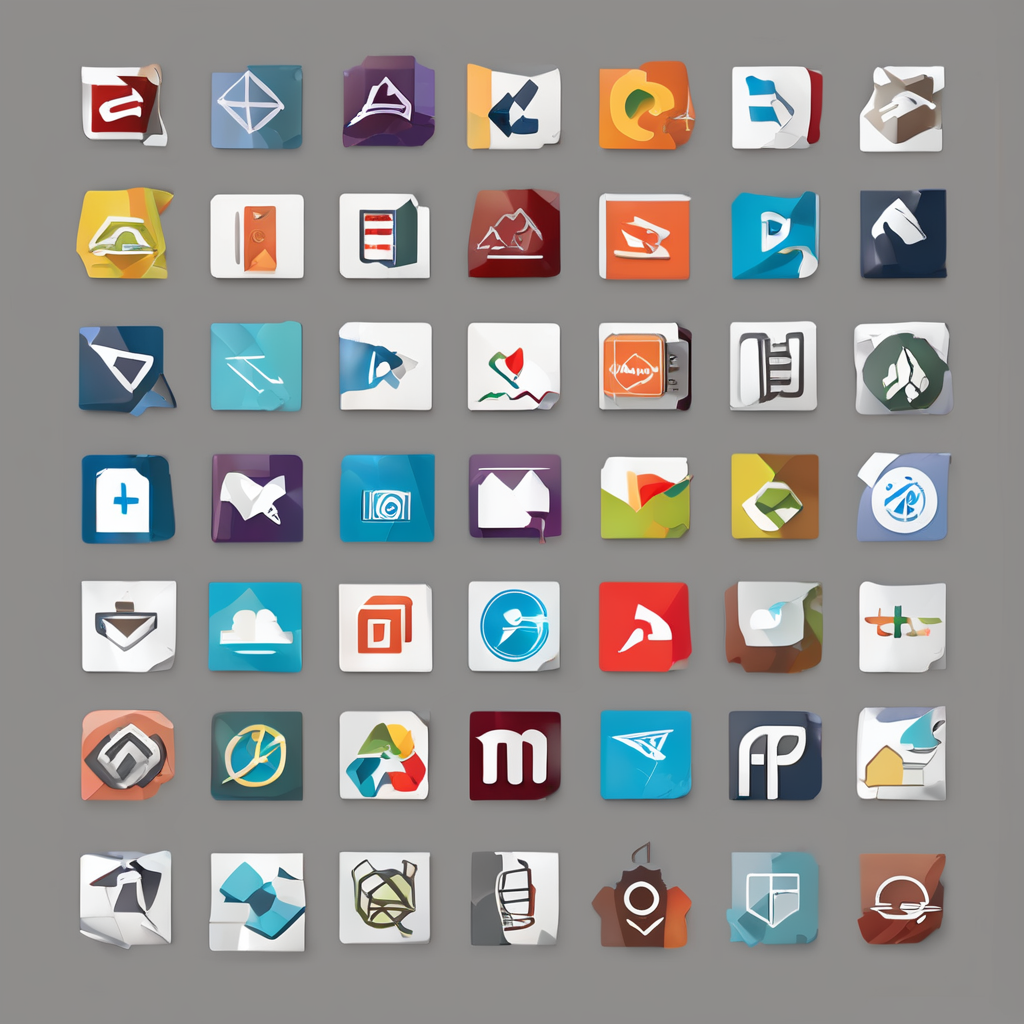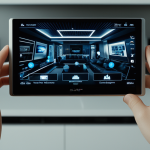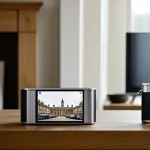Practical Applications of Tech Innovations in UK Women’s Fashion
The incorporation of tech in UK fashion is transforming how women’s clothing is designed and experienced. One notable breakthrough is the integration of smart textiles—fabrics embedded with sensors or conductive materials—allowing garments to adjust temperature, track health metrics, or change appearance dynamically. This innovation merges comfort with utility, offering wearers not just style but tangible benefits.
Another exciting development is wearable technology seamlessly integrated into fashion, such as smartwatches and jewelry that connect to smartphones or fitness apps. This tech boosts functionality while maintaining British style aesthetics, aligning with popular UK fashion trends that value both sophistication and practicality.
Topic to read : How can UK women incorporate global fashion influences into their outfits?
Retailers in the UK increasingly use augmented reality (AR) fashion tools to enhance shopping. Virtual fitting rooms allow customers to try on clothes digitally, reducing the need for physical trials and increasing convenience. These AR experiences tailor choices to individual preferences, improving the overall shopping surge greatly by blending technology with the fashion journey.
Moreover, digital design and on-demand production methods revolutionize manufacturing by minimizing waste and enabling bespoke orders. This flexible approach responds accurately to consumer demand, aligning perfectly with the sustainable direction of UK women’s fashion. These applications show how technology elevates functionality, personalization, and eco-consciousness in fashion today.
In parallel : How Do Seasonal Changes Affect Women’s Fashion Trends in the UK?
Leading UK Brands and Designers Incorporating Technology
UK fashion brands are increasingly at the forefront of fashion innovation UK, showcasing how technology can redefine women’s clothing. Several prominent designers integrate smart textiles and wearable technology directly into their collections, creating garments that blend traditional British style with cutting-edge functionality. These tech-forward designers partner with technology firms to develop materials that adapt to environmental changes or monitor wearer health discreetly.
Collaborations between tech companies and UK fashion brands have led to innovative projects, such as sensor-embedded dresses and accessories connected to mobile apps. These partnerships emphasize how technology in British fashion encourages experimentation, enhancing both aesthetics and utility. Tech integration is no longer a niche but a vital part of many UK designers’ visions.
Recognition in the form of awards and industry acknowledgment further establishes the UK’s role in pioneering tech in UK fashion. Designers known for these innovations often receive accolades for pushing boundaries in wearable technology and sustainable fashion practices. This recognition confirms the influence of technology-driven creativity, encouraging more brands to explore similar paths and advancing the UK’s global reputation in tech-enabled fashion.
Practical Applications of Tech Innovations in UK Women’s Fashion
The fusion of tech in UK fashion brings revolutionary changes to women’s wardrobes. Smart textiles play a pivotal role by embedding sensors within fabrics, enabling garments to react to environmental stimuli or track health signals. For instance, women’s coats may now adapt insulation according to temperature fluctuations, combining style with intelligent comfort.
Wearable technology integrates naturally into daily outfits, with devices that do more than tell time or display notifications. These include fitness trackers and smart accessories designed with an emphasis on aesthetics aligned with UK fashion trends—balancing functionality without sacrificing elegance.
Retail experiences evolve through augmented reality fashion tools. Virtual fitting rooms allow shoppers to visualize clothing on themselves without physical trials, making the buying process more personalized and efficient. This tech significantly reduces time spent in stores and returns, enhancing satisfaction.
Additionally, digital design paired with on-demand production supports sustainable practices by tailoring output exactly to demand. This minimizes excess inventory and waste, reflecting the increasing eco-conscious mindset in UK women’s fashion. These applications prove how wearable technology, smart textiles, and AR collectively elevate convenience, personalization, and sustainability in the fashion landscape.
Practical Applications of Tech Innovations in UK Women’s Fashion
The integration of smart textiles and wearable technology is reshaping women’s clothing by embedding advanced functionalities directly into garments. For example, smart fabrics now respond to changes in temperature or body signals, providing adaptive comfort while maintaining style in line with current UK fashion trends. Wearable devices such as fitness trackers and smart accessories are designed to complement outfits, marrying fashion with practical tech.
Retailers are also leveraging augmented reality fashion to elevate the UK shopper experience. Virtual fitting rooms enable customers to try on clothes digitally, improving fit accuracy and reducing the need for returns. This technology enhances personalized shopping by tailoring options to individual preferences, streamlining the purchase process and saving time.
Moreover, digital design tools support on-demand production, enabling brands to respond quickly to consumer demand while minimizing waste. This approach aligns with an eco-conscious shift in UK women’s fashion, allowing for bespoke creations without overproduction. Together, these technologies—smart textiles, wearable tech, AR, and digital manufacturing—create a more connected, efficient, and sustainable fashion environment for women across the UK.
Practical Applications of Tech Innovations in UK Women’s Fashion
The seamless integration of smart textiles and wearable technology is transforming women’s fashion in the UK by merging functionality with style. Smart textiles incorporate sensors or conductive fibers that allow garments to react to environmental changes or monitor health indicators. This technology supports adaptive comfort, such as fabrics altering insulation based on temperature, which aligns perfectly with evolving UK fashion trends that prioritize both practicality and elegance.
In retail, augmented reality fashion has revolutionized the shopping experience. Virtual fitting rooms use AR to allow customers to try on clothes digitally, enhancing fit accuracy and reducing unnecessary returns. This technology personalizes the shopping journey, catering to individual preferences and making in-store and online shopping more efficient.
Additionally, the adoption of digital design tools paired with on-demand production enables brands to meet consumer demand precisely while minimizing waste. This not only supports sustainability goals but delivers bespoke fashion items efficiently. Combining these innovative approaches—smart textiles, wearable tech, AR, and digital manufacturing—advances the functionality, personalization, and eco-consciousness of UK women’s clothing as key elements of modern tech in UK fashion.






